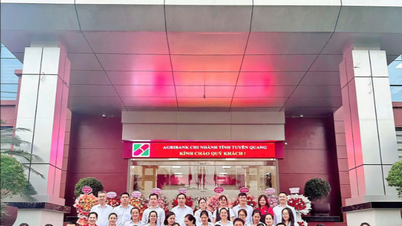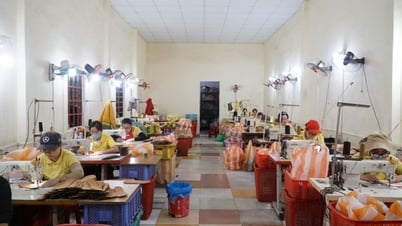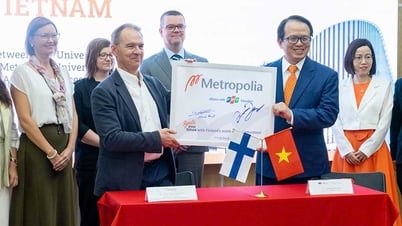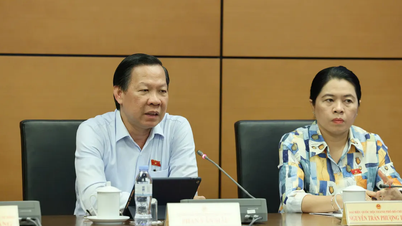Vietnam's sustainable development index reached 73 points, higher than the global average, and ranked second in Southeast Asia.

Vietnam is a bright spot in implementing sustainable development goals. According to the assessment report of the Ministry of Planning and Investment on the National Action Plan 2030 for Sustainable Development, Vietnam ranked 54th out of 166 countries ranked this year.
In terms of scores, Vietnam's sustainable development index reached 73 points, higher than the global average, and ranked second in Southeast Asia.
Vietnam scored best on ending all forms of poverty everywhere. Ensuring qualityeducation . Sustainable urban and rural development. Responding promptly and effectively to climate change and natural disasters.
The report at the workshop also said that Vietnam achieved the best scores in SDG1 (end all forms of poverty everywhere), SDG4 (ensure inclusive and equitable quality education), SDG11 (sustainable and resilient urban and rural development), SDG12 (ensure sustainable production and consumption patterns) and SDG13 (respond promptly and effectively to climate change and natural disasters).
The three lowest-scoring goals are SDG15 (sustainable forest protection and development, biodiversity conservation), SDG14 (conservation and sustainable use of oceans and seas) and SDG9 (build resilient infrastructure, promote inclusive and sustainable industrialization).
In the group of countries with similar income levels, Vietnam has a relatively impressive performance. Compared to countries in the same segment, Vietnam ranks 3rd out of 88 countries ranked in the group of lower-middle-income countries (after Ukraine and Kyrgyzstan) and 12th out of 88 middle-income countries (both low and high).
It can be seen that the post-Covid-19 world context has many difficulties affecting the ability to implement the SDGs globally, regionally and in Vietnam. In that context, the progress of implementing the SDGs tends to slow down, requiring more efforts from countries around the world. Vietnam needs to make efforts to maintain growth momentum, promote equality and ensure inclusiveness in the SDGs implementation process, in the post-pandemic context and challenges from climate change, population aging, and environmental degradation. It is necessary to promote multilateral cooperation to respond to global challenges, strengthen commitments and mobilize resources from stakeholders to realize the vision of sustainable development by 2030.
The report also points out some challenges for Vietnam in implementing the SDGs by 2030.
Firstly, the lack of financial resources. ODA sources have decreased significantly, especially after Vietnam became a lower middle-income country in 2010. FDI sources have continued to increase, but the quality and the extent of the FDI sector's influence on the country's sustainable development are not really clear. Investment sources from the domestic private sector have not yet demonstrated their role as a driving force for economic growth and sustainable development of the country as expected.
"In addition, unreasonable budget allocation and lack of specific support policies for disadvantaged areas are factors that increase the risk of these areas falling behind in the implementation of the 2030 Agenda for Sustainable Development (SDG NAP)," the report stated.
Second, coordination between levels and sectors in the public sector is still weak, failing to attract strong participation from businesses, social organizations and communities in mobilizing resources and directly implementing the SDGs. Lack of close coordination between levels, agencies and units is an obvious limitation. Many initiatives in implementing the program have been deployed, but are still isolated in some ministries, sectors and provinces and cities.
Policy mechanisms to encourage private investment in renewable energy, greener and cleaner production and consumption, development of circular economic models, low-emission economy, inclusive business models, impact creation... are not strong enough to turn private sector resources into a basic financial source to implement the SDG NAP.
Third, the reporting, monitoring and evaluation system for SDG implementation is not yet complete and consistent. The collection and processing of data on SDGs is not yet consistent and comprehensive. In addition, the digitization and application of information technology in collecting information and synthesizing data on SDG indicators is still slow.
According to PV/VTV
Source: https://doanhnghiepvn.vn/kinh-te/viet-nam-la-diem-sang-thuc-hien-muc-tieu-phat-trien-ben-vung/20241127092529541


![[Photo] Readers line up to visit the photo exhibition and receive a special publication commemorating the 135th birthday of President Ho Chi Minh at Nhan Dan Newspaper](https://vphoto.vietnam.vn/thumb/1200x675/vietnam/resource/IMAGE/2025/5/17/85b3197fc6bd43e6a9ee4db15101005b)



![[Photo] More than 17,000 candidates participate in the 2025 SPT Competency Assessment Test of Hanoi National University of Education](https://vphoto.vietnam.vn/thumb/1200x675/vietnam/resource/IMAGE/2025/5/17/e538d9a1636c407cbb211b314e6303fd)
![[Photo] Prime Minister Pham Minh Chinh chairs meeting on science and technology development](https://vphoto.vietnam.vn/thumb/1200x675/vietnam/resource/IMAGE/2025/5/17/ae80dd74c384439789b12013c738a045)



























![[Photo] Nearly 3,000 students moved by stories about soldiers](https://vphoto.vietnam.vn/thumb/1200x675/vietnam/resource/IMAGE/2025/5/17/21da57c8241e42438b423eaa37215e0e)






































































Comment (0)